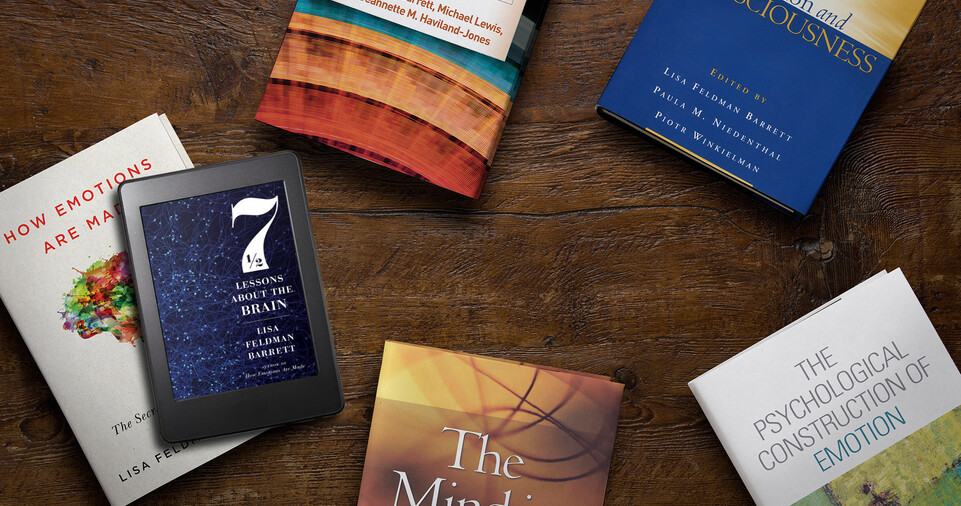Book discussions are an excellent way to engage readers, share perspectives, and deepen the understanding of literature.
Whether you’re hosting a book club, participating in a reading group, or simply looking for ways to make a book discussion more engaging, icebreaker questions are a powerful tool.
They not only warm up the conversation but also set a positive tone, encouraging everyone to share their thoughts freely and openly.
Icebreaker questions are essential in creating an inclusive environment where participants feel comfortable expressing their opinions, no matter how different they may be.
By using well-thought-out questions, you can prompt participants to reflect deeply on the book, uncover hidden insights, and foster connections between the participants themselves.
The right icebreaker can help readers focus on key aspects of the book, from character development and plot twists to thematic elements and authorial intent.
In this article, we’ll explore 10 icebreaker questions that can be used in any book discussion, ensuring a lively and engaging conversation for all involved.
Why Icebreaker Questions Matter in Book Discussions
Understanding the Importance of Icebreaker Questions in Book Discussions
Icebreaker questions play a critical role in breaking the silence that can often accompany a first-time book discussion.
When participants aren’t sure what to say or where to begin, a well-placed icebreaker can ease the tension and create a relaxed atmosphere.
In a book discussion, everyone may have their own takeaways, and sometimes, these can be vastly different from one another.
Icebreakers provide a neutral ground for everyone to share their thoughts, making it easier to dive into the deeper themes and analysis of the book.
Icebreakers are particularly useful in book clubs or reading groups where the participants might not know each other very well.
They foster an environment of trust and camaraderie, helping individuals feel more confident in expressing their thoughts.
Additionally, these questions can prompt participants to think critically about the book, allowing them to reexamine parts they may have glossed over initially.
This often leads to richer, more productive discussions.
Icebreaker Question 1: What Was Your Initial Impression of the Book? Did It Hook You from the Start, or Did It Take Time to Get Into?
This question serves as an excellent starting point for any book discussion. It gives participants the opportunity to reflect on their first experience with the book, which can often reveal their expectations and initial reactions.
For example, some people may be immediately drawn in by a gripping opening scene, while others may find themselves slowly warming up to the story as the plot develops.
By asking this question, you encourage participants to think about how the book’s opening affected them emotionally or intellectually.
The response to this question can also serve as a jumping-off point for a deeper discussion about the author’s writing style and pacing.
Did the author do a good job of drawing the reader in? Were there moments when the book felt slow or disjointed?
This question helps uncover these aspects, encouraging participants to reflect on how these elements contributed to their overall reading experience.
Icebreaker Question 2: Who Was Your Favorite Character, and Why? Did Any Character Surprise You as the Story Progressed?

Character development is often one of the most compelling aspects of any book, and this question allows participants to explore their emotional connections to the characters.
Asking about favorite characters gives individuals a chance to dive into the motivations, complexities, and growth arcs of the protagonists or supporting roles.
Some readers may gravitate toward the hero, while others may prefer an antihero or a minor character who plays a pivotal role.
In addition to discussing favorites, this question also invites participants to reflect on the evolution of characters throughout the book.
Were there any characters who surprised them, either by changing in unexpected ways or revealing hidden depths?
This opens the door for meaningful discussions on character arcs and the author’s skill in crafting multidimensional personalities.
It also allows for a diversity of opinions, as each reader may connect with different characters for different reasons.
Icebreaker Question 3: If You Could Ask the Author One Question About the Book, What Would It Be?
This question allows participants to step into the shoes of an inquisitive reader, fostering critical thinking and curiosity about the author’s intentions.
Sometimes, readers have questions about plot decisions, character actions, or the meaning behind certain events in the story.
This icebreaker invites participants to think more deeply about the author’s choices and explore how those choices shaped the overall narrative.
For instance, a reader might wonder why an author chose to leave certain plot points ambiguous, or they may be curious about the inspiration behind a character’s backstory.
The answers to these questions could provide a new layer of understanding and appreciation for the book.
Additionally, by sharing these questions with the group, participants can compare their interpretations and theories, further enhancing the conversation.
Icebreaker Question 4: Did Any Specific Quote, Line, or Passage Stand Out to You? Why Did It Resonate?
Books are filled with memorable quotes and lines that linger long after the last page is turned.
This question encourages participants to reflect on the most impactful moments in the book and analyze why those passages resonated with them personally.
For some, a quote may evoke a sense of nostalgia or inspire a shift in perspective. For others, it may highlight a key theme or moment of realization in the narrative.
By discussing specific quotes, readers can uncover layers of meaning in the text that they may not have noticed initially.
It’s also a great way to spark a conversation about the book’s underlying themes and messages.
Did the author use this particular passage to emphasize a larger point? What can we learn from the characters’ dialogue or internal monologues?
Icebreaker Question 5: What Emotions Did This Book Stir in You—Happiness, Anger, Sadness, or Something Else?

Books have the power to evoke a wide range of emotions, and this question allows participants to explore the emotional journey the book took them on.
Some books may leave readers feeling elated or uplifted, while others may trigger feelings of anger, sorrow, or frustration.
Reflecting on the emotions stirred by the book is an excellent way to understand its impact on an individual level.
This question also provides insight into the emotional depth of the story and its ability to connect with readers on a personal level.
Did the author craft scenes that were emotionally charged? Were there moments that made participants laugh out loud, or perhaps shed a tear?
By discussing these emotional reactions, readers can gain a deeper appreciation for the author’s skill in storytelling.
Icebreaker Question 6: How Did the Setting of the Book Contribute to Its Overall Mood or Message?
Setting is often an overlooked element in literature, but it can play a crucial role in shaping the tone and atmosphere of a story.
Whether the book takes place in a bustling city, a quiet countryside, or an entirely fictional world, the setting helps establish the mood and often reflects the themes and emotions explored within the narrative.
This question encourages participants to consider the importance of the setting in the story and how it influenced their reading experience.
Did the setting create a sense of isolation or intimacy? Did it reinforce the book’s themes, such as freedom, confinement, or cultural identity?
By discussing the setting in depth, readers can uncover a greater appreciation for the world-building aspects of the book.
Icebreaker Question 7: Did the Book Challenge Your Perspective or Teach You Something New? If So, How?
Books have the power to expand readers’ worldviews and challenge preconceived notions.
This icebreaker asks participants to reflect on how the book influenced their thinking.
Perhaps the book introduced them to a new culture, historical event, or philosophical idea.
Or maybe it forced them to confront uncomfortable truths about themselves or society.
By asking this question, readers can share how the book impacted them beyond entertainment.
Did it challenge their beliefs or provide them with a new lens through which to view the world?
These types of discussions often lead to a deeper, more thoughtful exchange of ideas.
Icebreaker Question 8: Was There a Moment in the Book That Shocked or Surprised You? How Did You Feel About It?

This question taps into the element of surprise, which is often a key feature of memorable books.
Whether it’s an unexpected plot twist, a shocking revelation, or an unforeseen character decision, certain moments in a book can leave readers speechless or even stunned.
Discussing these moments can reignite the excitement and anticipation that readers felt during those key scenes.
It also allows for a discussion of the author’s use of suspense and pacing.
Did the author’s surprise leave readers feeling satisfied, or was it a disappointment? This conversation can help participants explore how effectively the author built tension and executed the twists in the plot.
Icebreaker Question 9: If You Could Change One Thing About the Book—Plot, Ending, or a Character Arc—What Would It Be?
Every reader has their own perspective on how a story should unfold.
This question invites participants to reflect on areas of the book that they felt could have been improved or altered.
Whether it’s a plot point that didn’t make sense, a character arc that didn’t feel complete, or an ending that left them unsatisfied, this question allows readers to critique the book constructively.
This discussion can lead to fascinating insights into the book’s structure and themes.
It also encourages creativity, as readers imagine alternative versions of the story.
Would a different ending have made the story more impactful? Could a character have taken a different path that would have changed the course of events?
Icebreaker Question 10: Would You Recommend This Book to Others? If Yes, to Whom? If No, Why Not?
The final icebreaker question provides a natural conclusion to the discussion.
It encourages participants to summarize their overall thoughts on the book and consider whether they would recommend it to others.
If they would recommend the book, this question also invites them to think about who would most enjoy it—whether it’s a specific type of reader or someone interested in a particular genre or theme.
On the flip side, if a participant wouldn’t recommend the book, it’s important to explore why. Did they find it boring, confusing, or poorly written?
This allows for a respectful exchange of differing opinions, helping everyone to understand what worked and what didn’t in the book.
ALSO READ: Virtual Book Clubs: How to Make Them Engaging and Fun
Conclusion
Book discussions are a fantastic way to dive deep into literature and connect with other readers.
By using thoughtful icebreaker questions, you can create an engaging and enriching environment where participants feel comfortable sharing their opinions and experiences.
These questions not only help people start the conversation but also encourage a deeper exploration of the book’s themes, characters, and writing style.
The 10 questions outlined in this guide are designed to get your book discussion off to a great start, spark lively conversations, and ultimately enhance your reading experience.

